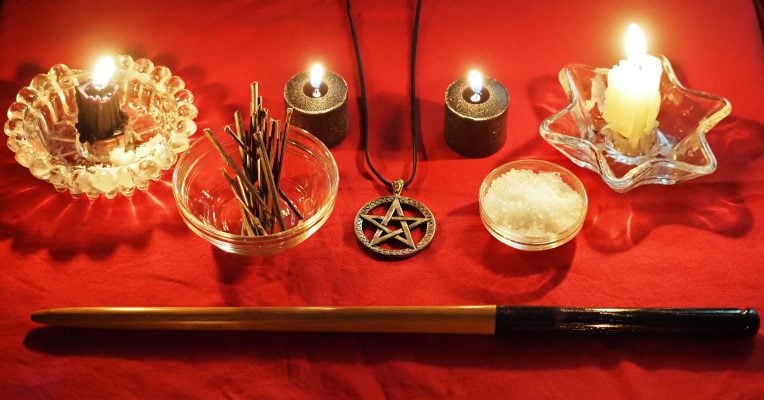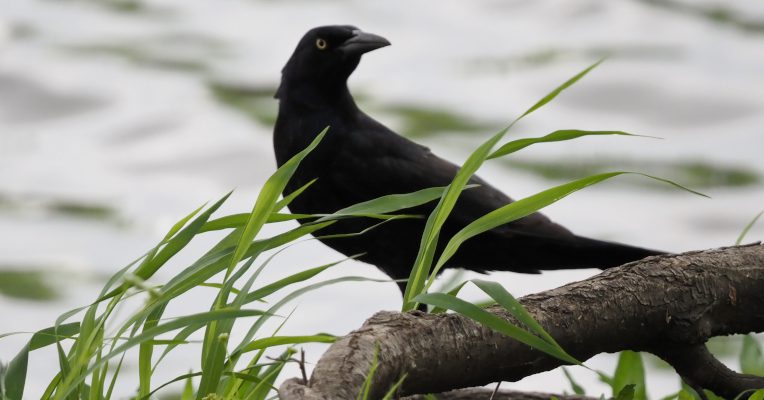Heather Greene has an excellent article on Religion News Service titled How to make a thousand witches with one Supreme Court decision. It blends references to “witch cinema” (a topic about which Heather wrote the book, quite literally) with comments from academics, journalists, and witchcraft practitioners. It’s not long and I encourage you to read the whole thing for yourself, but the subtitle does a good job of summarizing it:
Magic has always been, in lore and in life, a tool of the oppressed.
Empowering women in the face of oppression has been one of the central themes of the modern witchcraft movement – so much so that many people who call themselves witches never cast a spell or summon a spirit. So be it – I have no interest in debating the boundaries of witchcraft. My job is to be here for those who want spells and spirits in their life.
This is a good time for my usual disclaimer that I don’t call myself a witch. I’m a Druid and a priest and that’s enough identities for me… for now, anyway. But my practice (especially my magical practice) is virtually indistinguishable from witchcraft and so articles such as Heather’s are as meaningful and helpful to me as they are to others.
The article’s title points to a truth: as oppression increases, so does witchcraft.
I’m a straight white cis man with a middle class job – others face far more oppression than I do. But merely living in an oppressive society is difficult and harmful for all people of good will. I don’t like living in a society that strips fundamental rights away from half the population, that refuses to address mass shootings, and that tries to legislate trans people – especially trans kids – into non-existence.
I do what I can to be an engaged citizen. I vote and I encourage others to vote. I contribute to good candidates and sometimes to less-worse candidates. But I can’t fix it. I can’t make it go away. And I can’t “just not worry about it.” How can you not care about injustice and oppression? You don’t have to be obsessed with it (unless you do) but how can you pretend it doesn’t exist? How can it not bother you?
It bothers me.
But as oppression increases, so does witchcraft.
We can be inspired by fictional witches
Those who complain that the witches and witchcraft of The Chilling Adventures of Sabrina or The Craft or some other movie or TV show aren’t real are missing the point. We know they’re not real. We know we can’t do what our fictional counterparts can do. But they’re fun to watch, and especially in times like these, we need all the fun we can get.
More importantly, seeing the fictional magic we can’t do inspires us to dive deeper into the real magic we can do.
The magic and witchcraft of Buffy the Vampire Slayer was almost completely made up. Not only does it not resemble real magic, most of it doesn’t resemble traditional folkloric and fictional magic. But I’ve always felt a close book-nerd-outsider kinship with Willow, so when I pop in “Hush” or “Family” or the final four episodes of season six (with Dark Willow) I’m almost always inspired to recommit myself to the real magic I can do.
The impulse to “go Dark Willow” is getting stronger, but that’s another topic for another time. I think.
We need good stories. Our stories of witches and witchcraft are some of the best we have, especially in the face of governmental, plutocratic, and patriarchal oppression.
We can work magic to improve our conditions
Magic can’t make something happen, but it can improve the odds that it will happen. Through the manipulation of unseen energy, through the intercession of Gods and spirits, and through psychological programming, spells and charms and other workings can move the odds from “possible” to “likely” and from “likely” to “almost certain.”
Honestly, working magic is easy. Figuring out what to work magic for is hard.
Magic works best when it’s tightly focused on a clearly defined target. Big group workings to change the world are rarely effective, because they’re vague and high-level. That’s why I didn’t participate in the original binding of Donald Trump in 2017 (I did other work instead). There is a place for large group workings, and if the current religious and political polarization continues to worsen, they may become necessary. But they are inherently difficult.
On the other hand, small, local, personal, individual spells are much more likely to produce meaningful results.
What do you need? Work on it from all angles: physically, religiously, and magically.
When you’re done, tell us all about it (to the extent you can). The more we share our stories of magical success, the more we’re reminded that magic is real and the more likely we are to work magic again in the future. And so are others who are inspired by our stories.
We can adopt the archetype of the witch
Somewhere after being inspired by witchy stories and beyond actually doing witchcraft lies a third path: adopting the archetype of the witch.
Throughout history witches have been outsiders. Often those accused of witchcraft were guilty of nothing more than being old, unpleasant, or a rival to someone in power. So while I’m happy that witchcraft is becoming more popular with and accepted by the mainstream, it will never be something the majority embraces. Hopefully it remains something the majority tolerates – witch trials are ugly things.
But if we’re going to be treated as outsiders then let’s revel in being outsiders: those who follow our own calling and do what we think is best, not what we’re told we’re supposed to do.
Throughout history witches have been feared. We often point to the Old Testament as the root of anti-witch hysteria, but the Romans prescribed the death penalty for those found guilty of working malefic magic. To this day, in some parts of the world people are killed because others think they worked magic against them.
Most people in the West say they don’t believe in witchcraft… until you ask them for a lock of their hair. The fear of magic is very old and runs very deep. What can be rationalized away when you’re holding checks from political contributors is much harder to ignore when you turn out the lights at night.
Oppressors should be afraid. If they won’t fear voters or even their God they should fear the witches their oppression creates.
Who is your coven?
Throughout history witches have been accused of being part of covens and other secret societies. Most of those accusations were baseless conjecture. A few were real, in part if not in whole.
Even outsiders need community. Even fearsome witches occasionally need support. And while one witch is powerful, thirteen witches are more than thirteen times powerful.
So while we may mostly live and work and practice on our own, we need a few fellow practitioners we can call on for advice, for encouragement, and to occasionally show up with a wand and a ball of string ready to go to work.
Or to bring a pot of soup.
Whether you call it a coven or something else, whether there are thirteen or thirty or three, find the ones who will be there for you – and who you’ll be there for without a second thought.
Times aren’t getting easier
I wish I could say things will be better after an election or two, but I can’t.
What I can say is that as oppression increases, so does witchcraft.
And if things didn’t turn out well for the historical witches, remember that most of them weren’t actual witches. Who did actual witchcraft. Even those who were witches didn’t have the books, tools, teachers, and other resources we have today.
We will cast better spells.
We will tell better stories.
And we will make them true.




















